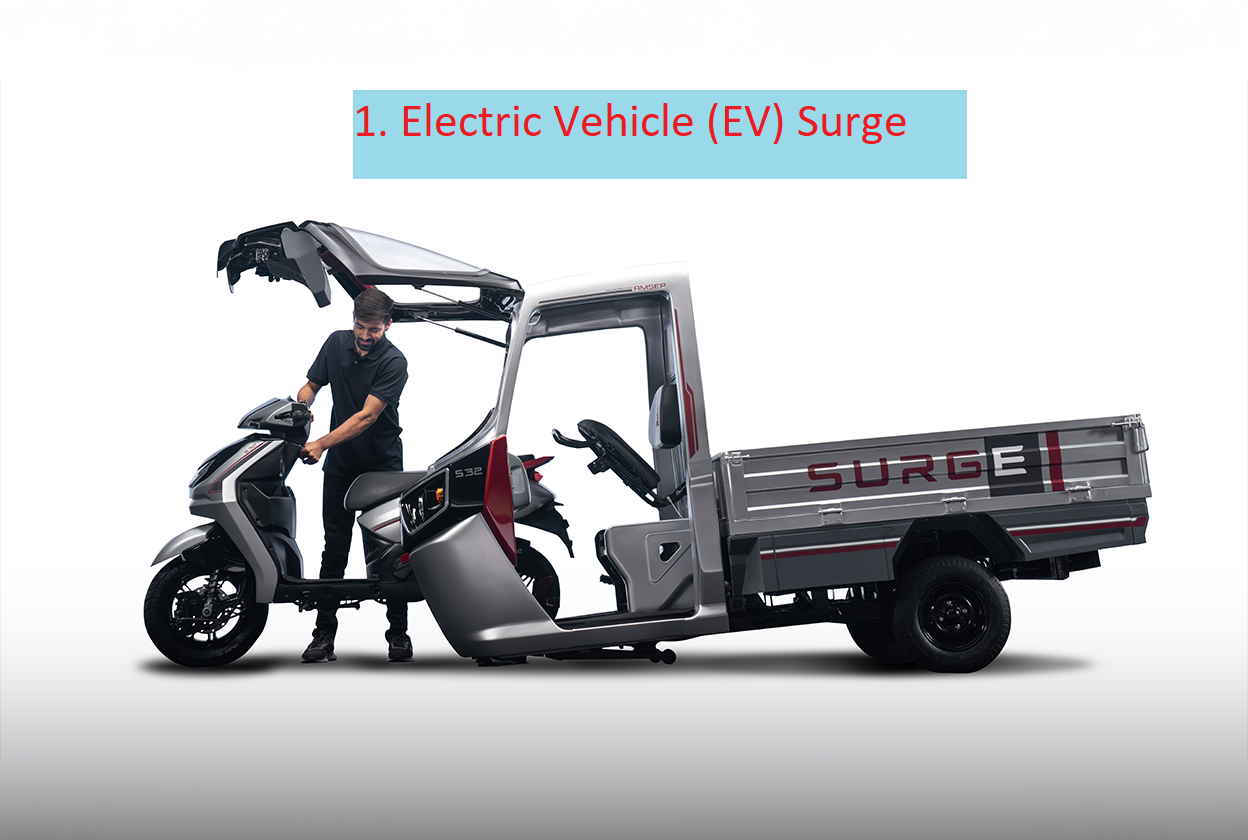October 2024 is shaping up to be an exciting period for the automotive industry, with numerous trends emerging as the sector evolves through technological advancements, environmental concerns, and shifting consumer behaviors. Here are some key highlights of auto trends making waves this month:
1. Electric Vehicle (EV) Surge
The EV revolution is continuing to accelerate, with more automakers launching electric models across all vehicle categories—from compact cars to heavy-duty trucks. Advances in battery technology, particularly solid-state batteries, promise extended ranges and faster charging times, making EVs more practical for a broader audience. Many car manufacturers are committed to expanding their EV lineup to meet stricter emissions standards and growing consumer demand for sustainable options(
2. Autonomous Driving Innovations
While fully autonomous vehicles (AVs) aren’t common on the streets yet, 2024 has seen advancements in semi-autonomous driving features. Systems like adaptive cruise control, automatic lane-keeping, and advanced sensors for real-time traffic navigation are becoming more refined. Tesla, Waymo, and other tech giants continue to test self-driving cars on public roads, pushing closer to a future where AVs are standard(
3. Vehicle Connectivity & IoT
As vehicles become smarter, 2024 is seeing an influx of connected cars equipped with 5G technology. These cars feature advanced infotainment systems, vehicle-to-everything (V2X) communication, and seamless smartphone integration, creating a more connected driving experience. These smart vehicles are also poised to improve road safety through real-time communication with infrastructure and other vehicles(
4. Hydrogen Fuel Cell Vehicles
Hydrogen-powered vehicles are gaining attention as a potential solution for heavy-duty transportation, especially trucks and buses. While still in their early stages compared to EVs, hydrogen fuel cell vehicles (FCEVs) offer longer ranges and shorter refueling times. In October, several major automakers, such as Toyota and Hyundai, have ramped up their investment in hydrogen technology(
5. Sustainability in Manufacturing
The auto industry is increasingly focusing on sustainability beyond electric propulsion. Many automakers are adopting eco-friendly practices in their production processes, including the use of recycled materials and the implementation of carbon-neutral manufacturing plants. Companies are also reducing the environmental impact of their supply chains by sourcing materials responsibly(
6. Rise of Subscription-Based Car Services
Car ownership is evolving, with subscription-based services becoming more mainstream. These services allow consumers to access vehicles without long-term commitments, offering flexibility that appeals to younger drivers and urban dwellers. Companies like Volvo and Porsche are expanding their subscription programs to include a variety of models, providing consumers with more options for short-term vehicle use(
7. Digital Retail and Online Car Buying
The pandemic accelerated the trend of buying cars online, and in 2024, it has become the new norm. Consumers can now browse virtual showrooms, compare models, and complete the purchase process online, often with the option for home delivery. Tesla’s direct-to-consumer sales model is leading the charge, and other automakers are adopting similar strategies(
8. In-Car Entertainment & Infotainment
Larger touchscreens, voice-activated systems, and immersive entertainment options are now standard in many 2024 models. These systems, powered by 5G, provide better connectivity, real-time updates, and integration with smart home devices. In-car entertainment is set to become more important as autonomous driving takes over, allowing passengers to enjoy content while commuting(
9. EV Charging Infrastructure Expansion
With the growing number of EVs on the road, October has seen significant progress in expanding the charging infrastructure across cities and highways. Governments and private companies are investing heavily in building more fast-charging stations to support the surge in EV adoption, making long-distance travel more feasible for electric cars(
10. Lightweight Materials for Improved Efficiency
Automakers are increasingly utilizing lightweight materials such as high-strength steel, aluminum, and carbon fiber to enhance vehicle performance and efficiency. These materials help reduce the weight of vehicles, leading to better fuel economy and reduced emissions. In 2024, the shift toward using lighter, more durable materials is expected to continue, especially in electric and hybrid vehicles(
